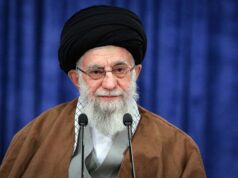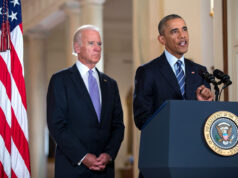Iran agreed to send some 1,200 kilograms of its 3.5 percent enriched uranium over to Turkey in exchange for a total of 120 kilograms of 20 percent enriched uranium, news sources reported Monday. Based on the agreement, the fuel swap would take place about one month after receiving official approval from the Vienna Group, which consists of representatives from Iran, France, Russia, the U.S. and the IAEA.
Monday’s fuel swap agreement superficially resembles a proposal offered by the United States, France and Russia last October. In that plan, like the latest one, Iran was to give up 1,200 kilograms of the uranium it has enriched in exchange for 120 kilograms of fuel rods it could use in a medical research reactor. However, the differences between the two plans are crucial.
The original would have left Iran without “breakout capacity,” or enough enriched uranium to produce a bomb with further processing. In the latest agreement, Iran will retain a enough highly enriched uranium to produce a bomb. In addition, Tehran insists it will continue enriching uranium to a higher level — bringing it closer to being able to make atomic warheads.
The U.S. and its allies are aware of this difference, however. Indeed, on Tuesday, the UN Security Council’s five permanent members – Britain, China, France, Russia and the United States – agreed on a “strong draft” for a fourth round of sanctions against Tehran for continuing to defy the international community by enriching uranium. Russia and China previously resisted calls for a new round of sanctions. The new sanctions aim at banning the sale of tanks, armored fighting vehicles, large caliber artillery, war planes, attack helicopters, warships, missiles and missile defense systems to Iran, AFP reported.
Perhaps unsurprisingly, Iran said Thursday it will back out of the agreement if the UN Security Council approves the sanctions. “If the fourth round of sanctions gets approved, Iran’s commitments stipulated in the recent statement on the agreement and sending enriched uranium abroad will be annulled,” Deputy Speaker of Parliament Mohammadreza Bahonar said.
Tehran’s move Monday was clearly aimed at derailing the United States’ effort to push through another round of UN sanctions. However, world powers treated the plan with the skepticism it deserved and, in the end, Iran’s move may have backfired. If passed, the new round of sanctions will certainly be a win for the United States and its allies.





